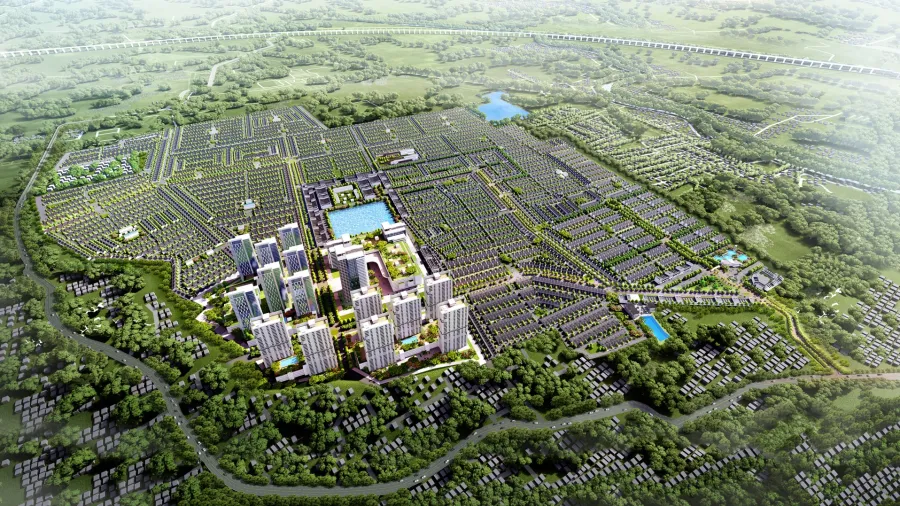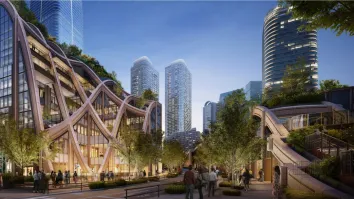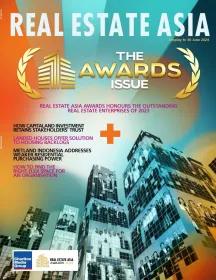
Dwicitra Land’s initiative in providing housing concepts for millennials
The developer targets the middle class seeking to purchase homes for immediate occupancy.
There remains a significant disparity between the number of constructed houses and the actual demand in Indonesia.
Laying down the numbers, Bank Tabungan Negara said that 5.8 million millennials currently cannot afford to own a house. Among them, 79% of the housing shortage affects millennials residing in urban areas.
In response to this challenge, housing developer Dwicitra Land is trying to provide housing solutions that are compact and affordable.
“We aim to offer housing with quality infrastructure, green surroundings, complete facilities, and quality homes sutable for living with easy financing,” said Dwicitra Land Director Bryan Soedarsono in an exclusive interview with Real Estate Asia.
Fusion of concepts
The millennial generation’s interest in attractive residential designs, equipped with the latest technology such as CCTV, smart locks, reliable internet network as well as green areas and communal spaces is being captured by Dwicitra Land and incorporated into their housing projects.
The property developer focuses on targeting the middle class segment, specifically end-user buyers or those purchasing homes for immediate occupancy.
In terms of size, the types of houses provided by Dwicitra Land include single-story houses with an average building size of 36 square on approximately 72 square meters of land; and for two-story houses, an average building size of 60 square meters on approximately 78 square meters of land.
“What we provide is a compact house on spacious land so that the financial burden of buying a house upfront is not too heavy. The ample land allows families to expand their homes in the future when they are more financially comfortable or have children,” said Bryan.
He explained that during the pandemic, many people faced financial impacts, so Dwicitra Land needed to introduce a concept of more affordable yet livable homes. The Work from Home period during the pandemic also increased the importance of having a home that supported work and family activities. “The new post-pandemic housing is not only incorporating quality homes at affordable prices but also an environment that can support daily activities,” he said.
To address this, Dwicitra Land not only includes smart homes features in their project but also creates a peaceful environment to make residents feel comfortable in their daily activities. Their housing projects feature a serene environment, thematic gardens, and lakes to support a healthy lifestyle.
Ease of financing
Furthermore, the effects of the pandemic from an economic perspective make Dwicitra Land need to provide financial convenience for its consumers.
One of the things done by this housing developer is to work together with the Bank Tabungan Negara to form a promotional program for consumers if the purchase is made during the launching period.
The promo is given in the form of a House Installment Subsidy for 2 years so consumers only need to pay a House Installment of IDR1.7 million (US$110.23) per month.
For the two-storey houses, consumers can pay installments of IDR2.5 million (US$162.10) per month for a new cluster in their existing housing in Bekasi. The installment subsidies are expected to make it easier for consumers.
In addition to installment subsidies, the developer also provides subsidies for land and building rights acquisition tax (BPHTB) and sale and deed of sale and purchase (AJB).
Dwicitra Land also works with other financial institutions such as Bank OCBC, Bank Danamon, BRI, Mandiri and BSI.
“The economic crisis following the COVID-19 pandemic can make it difficult for people, especially the millennial generation. For this reason, we work together with banks to offer a mortgage program that makes it easy," said Bryan.
Take for example its project, Grand Tenjo Residence, which is a cluster system housing in an area of 40 hectares with a resort living concept in the Bogor area, West Java. Dwicitra Land provides prices ranging from IDR350 million–IDR650 million (US$22,750–US$42,250) for Grand Tenjo’s occupant with the convenience of subsidies.
“There is a down payment subsidy from the developer, so consumers no longer need to pay a down payment. Just pay the Booking Fee to buy a house at Grand Tenjo,” he said.
Featured project
Dwicitra Land boasts several housing projects in Jabodetabek area, including Bogor, South Tangerang, and Bekasi.
When selecting residential locations, the developer considers accessibility around the residential areas under development. “We align with government planning. Currently, the government is actively constructing toll roads. For instance, our housing projects in Bekasi are already connected to the toll road and electric rail train (KRL) to make it easier for residents’ commuting,” Bryan said.
One of its other projects is the Darmawangsa Residence located in Bekasi, West Java.
Developed in 2011, houses at Darmawangsa Residence were at first sold at IDR200 million (US$12,967), but Dwicitra Land did some research. “We turned our heads by looking at other housing projects in the satellite city that were selling houses at a price of IDR1 billion (US$64,839),” Bryan recalled.
“We were inspired to make a compact two-storey house, type 70, at a price of IDR700-800 million (US$45,387-US$51,871). So we opened a new market and it succeeded in attracting many consumers,” he said.
This year, Dwicitra Land is focusing on developing new clusters in their existing housing units such as those in Darmawangsa Residence, which has just opened its seventh cluster. The company targeted marketing sales in the range of IDR900 billion (US$59 m) for the entire project they are working on.
















 Advertise
Advertise


